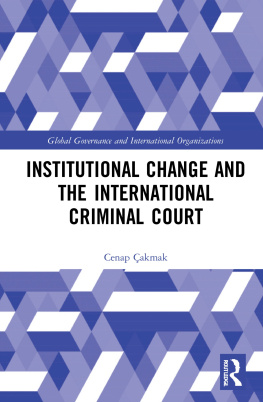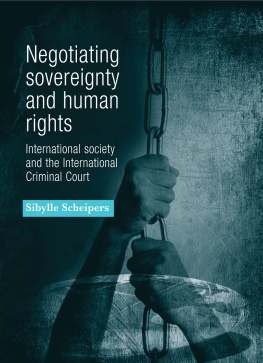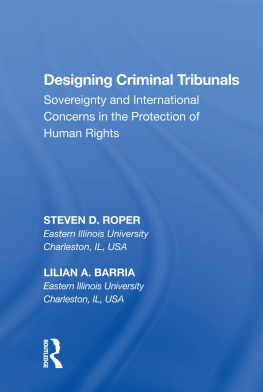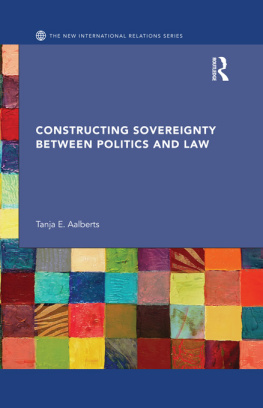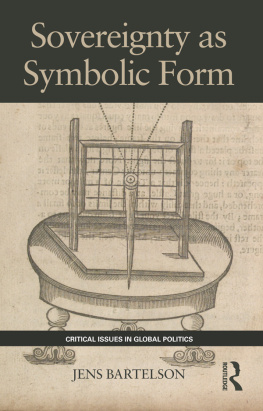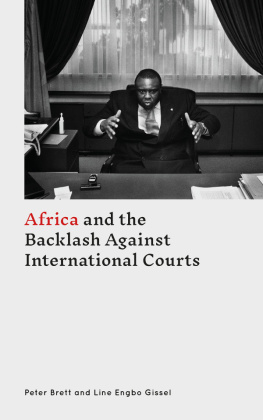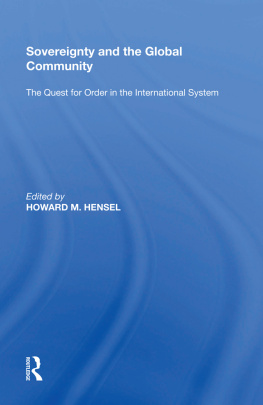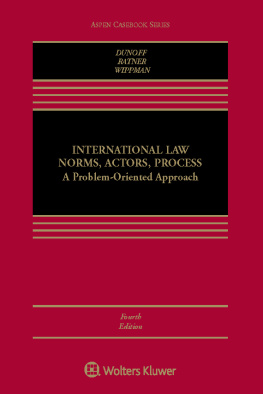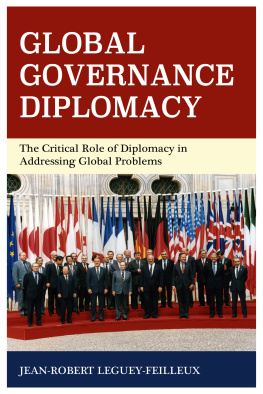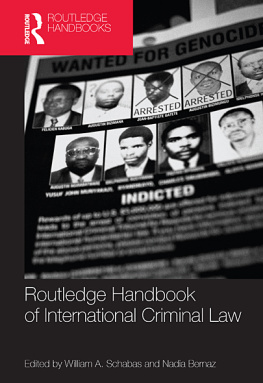Institutional Change and the International Criminal Court
This book explores the dynamics and trajectories of change in international politics through an English School analysis of primary institutions including international law, sovereignty, and diplomacy, with particular reference to the creation of the International Criminal Court (ICC).
The study argues that it serves as an important indicator and model for redefining international politics, particularly through its impact upon three major institutions as prescribed by the English School: international law, sovereignty, and diplomacy. The author explores three major areas: the ICCs contribution to the consolidation of the individual as a subject of the international law; the significance of the Court and its jurisdiction in terms of the state sovereignty; and the strong and determinative role of non-state actors active on global level during the diplomatic process upheld for the making of the norms and rules during the creation of the ICC. These three fields of change, point out to the redefinition and reconstruction of international politics, heralding a solidarist vision of international society.
The book will be of particular interest to researchers in the field of the IR, as well as graduate students interested in IR theory, international law, and international organizations.
Cenap akmak is a professor of international law and politics at Anadolu Universitys Department of International Relations (Turkey).
Global Governance and International Organizations
For more information, please visit our website: https://www.routledge.com/Global-Governance-and-International-Organizations/book-series/GGIO
Titles in this series:
Institutional Change and the International Criminal Court
Cenap akmak
Institutional Change and the International Criminal Court
Cenap akmak
First published 2022
by Routledge
2 Park Square, Milton Park, Abingdon, Oxon OX14 4RN
and by Routledge
52 Vanderbilt Avenue, New York, NY 10017
Routledge is an imprint of the Taylor & Francis Group, an informa business
2022 Cenap akmak
The right of Cenap akmak to be identified as author of this work has been asserted by him in accordance with sections 77 and 78 of the Copyright, Designs and Patents Act 1988.
All rights reserved. No part of this book may be reprinted or reproduced or utilised in any form or by any electronic, mechanical, or other means, now known or hereafter invented, including photocopying and recording, or in any information storage or retrieval system, without permission in writing from the publishers.
Trademark notice: Product or corporate names may be trademarks or registered trademarks, and are used only for identification and explanation without intent to infringe.
British Library Cataloguing-in-Publication Data
A catalogue record for this book is available from the British Library
Library of Congress Cataloging-in-Publication Data
A catalog record has been requested for this book
ISBN: 978-1-032-04990-8 (hbk)
ISBN: 978-1-032-04991-5 (pbk)
ISBN: 978-1-003-19552-8 (ebk)
DOI: 10.4324/9781003195528
Typeset in Times New Roman
by MPS Limited, Dehradun
To Murat and Mahir, friends for life; And to the memory of my mother
Contents
Author Biography
Acknowledgements
Introduction: Change and continuity in international politics
The making of international law and international institutions: An English School approach
Consolidation of status of individual as subject of international law
The International Criminal Court and change in nature and definition of sovereignty
New diplomacy and the International Criminal Court: Non-state actors in the making of international law
Conclusion
Bibliography
Index
Cenap akmak is a professor of international law and politics at Anadolu Universitys Department of International Relations (Turkey). He holds MA and PhD degrees from Rutgers University and held visiting posts with TMC Asser Institute, The Hague, and Max Planck Institute for Comparative Public Law and International Law. He is an author and editor of several monographs and volumes, including, most recently, A Brief History of the International Criminal Law and the International Criminal Court (Palgrave, 2017), Islam: A Worldwide Encyclopedia (ABC-CLIO, 2017), and World Community and the Arab Spring (with Ali Onur zelik) (Palgrave, 2019). Dr. akmak currently conducts research on Islamic contribution to the theory of international law with particular reference to the Islamic law of armed conflict.
Mainstream IR theories are often portrayed as resistant to the idea of change in international politics, or incapable of explaining the dynamics of change. Whether or not this statement is analytically accurate is not part of the discussion raised in this book. Rather, I depart from the premise that change is pervasive and identifiable in many areas of international politics, and rely on the English School conception of primary institutions of the international society to identify the nature and scope of change and whether or not such a change represents a transition from international society to world society. The creation of the International Criminal Court (ICC) serves as a case study in this analysis which seeks to maintain the role of the process of its creation in the depiction of change in three primary institutions: sovereignty, international law, and diplomacy.
Change is a popular subject in the IR circles; a number of articles, but a smaller number of books has been produced to address this issue. These works offer deep insights into the subject; some of them have a narrower focus, for instance, on state whereas others discuss a rather particular subject: i.e. change and continuity with reference to the status of individual in the international legal system. Not all these authors are English School scholars, therefore, their focus is not necessarily on a discussion of international society. What distinguishes my book is its emphasis upon the International Criminal Court (ICC) (referred to as a secondary institution rather than primary institution) in the trajectory of change in three institutions of international society (international law, sovereignty, and diplomacy). In other words, this is a book discussing change and continuity in international society with reference to impact of a secondary institution upon primary institutions.
A particular focus on this partial narrative (the establishment of the Court) shows evidence of visible tendency among the actors of global governance, particularly civil society groups and like-minded states, to promote an ambitious vision of international justice and integrated efforts towards addressing the issue of impunity. However, this is only part of the story; the ICC has been facing serious obstacles, mostly as manifestations of the realpolitik considerations upheld by security discourse-driven states. Three permanent members of the UN Security Council (United States, Russia, and China) have no intention whatsoever of joining the Court; some of the Court initiatives (i.e. its involvement in the situation in Palestine) are cited with caution by some members (including Canada and Germany). Thus, the overall conclusion presented in this book should be construed to bear relevance to the establishment of the ICC rather than its aftermath. The Court organs, as well as friends and supporters of the ICC, work hard to ensure transparency in its works and to ensure that it serves as a global institution holding legitimacy in dealing with the worst crimes.

